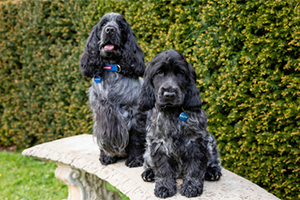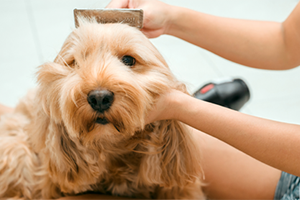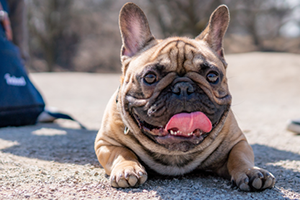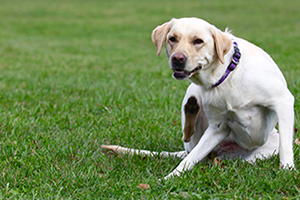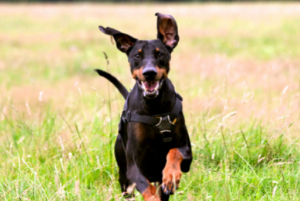
A courageous little dog who loves being the centre of attention
Vital stats
Swipe to view more
| Size: | Small |
| Coat: | Long and straight with a soft undercoat |
| Exercise | Up to 30 minutes a day |
| Life span: | 12-16 years |
| Breed group: | Toy |
| Temperament: | Playful, outgoing, intelligent |
Pomeranian temperament & personality

- Poms’ vocal nature and wilful personalities mean that good socialisation is essential from a young age.
- Affectionate, playful and adaptable, Pomeranians do well in most home environments, getting on well with children and cats.
- Like other Toy breeds, Pomeranians can be prone to separation anxiety and are best suited for homes where someone will be around for most of the day.
Pomeranian training & exercise

Training tips
- Believe it or not, Pomeranians hail from the same group as the sled pulling Husky. As such, they can run extremely fast and good recall training is important to help keep them safe.
- Socialisation is particularly important for the strong-willed Pomeranian and puppy training classes can help them to learn to be around others whilst also learning basic commands.
Keeping them happy
- Pomeranians love to be at the heart of the family and will be happiest when around the people they love.
- If you do have to leave your dog alone for a short time, make sure your Pomeranian has plenty of puzzle toys to keep their mind active whilst you’re away.
Exercise
- Due to their small stature, Pomeranians will do well with two 15-minute walks a day.
- However, this curious little dog will also enjoy exploring a secure garden or outside space so make sure to let them run around outdoors between walks.
- It’s worth noting that Pomeranians have delicate windpipes so experts recommend a harness rather than a traditional collar and lead when out on a walk.
Common Pomeranian health conditions

Pomeranian grooming

Pomeranians have a long, straight, fluffy coat with a characteristic ‘frill’ of fur around their neck and chest. Like other dogs in the Spitz group, their fur is adapted for cold weather and they have a thick undercoat that sheds seasonally.
- In recent years, a closely cropped Pomeranian haircut has become popular – but if you choose this, make sure your groomer doesn’t damage the soft undercoat.
- As well as brushing their coat daily to prevent mats, you should also brush your Pomeranian’s teeth regularly to prevent dental problems, which are a common health issue for this breed.
Pomeranian nutrition

Since Pomeranians can be prone to sensitive tummies as well as dental issues, it’s important to get their nutrition right. Your vet will be able to advise you on what to feed your Pomeranian.
- Dental problems can be common among Pomeranians, so incorporating dry food and chews into their diet can help to keep their teeth and gums healthy.
- Despite their small size, Pomeranians have heaps of energy and require two feeds and two exercise sessions totalling 30 minutes per day to stay at their ideal weight.
Pomeranian frequently asked questions
Discover some of the most popular dog breeds
Pomeranian insurance considerations
We always offer these things as standard:
Physiotherapy & pet therapies
Along with physiotherapy, which is covered within the Vet Bills benefit, we also cover Pet Therapies like herbal medicine, homeopathy and acupuncture. You can also claim for hydrotherapy, up to £500 per illness/injury in dogs and cats (no additional limit for rabbits).






































